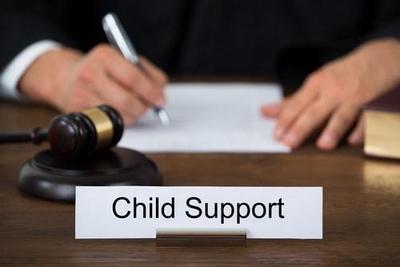Recent Blog Posts
Divorce and Domestic Abuse
 Divorce is hard enough. When you are seeking a divorce as a way to escape a domestic abuser, it can be even worse. Domestic violence causes harm to countless Illinois families each year, but without the right information, it can be extremely difficult to get out of a bad situation.
Divorce is hard enough. When you are seeking a divorce as a way to escape a domestic abuser, it can be even worse. Domestic violence causes harm to countless Illinois families each year, but without the right information, it can be extremely difficult to get out of a bad situation.
Ensuring Physical Safety
In Illinois, it is possible to file for relief either under the Domestic Violence Act (DVA) or under both the DVA and the Illinois Marriage and Dissolution of Marriage Act (IMDMA) in conjunction. Your abuser must either be related to you by blood or a current or former spouse or romantic partner. If you choose to bring your action under the IMDMA, the standard of evidence will be higher; under the DVA, a person must simply show that they have been subjected to harassment and abuse and that the harassment will continue if their spouse is not prevented by a judgment from doing so.
The Illinois Non-Support Punishment Act
 Under Illinois law, every child has the right to support from his or her parents, regardless of marital situation or whether or not they were born in wedlock. If this support is not paid, the state takes it extremely seriously, because it is a public policy concern to ensure that children within the state are well cared for. The Illinois Non-Support Punishment Act (INSPA) was established to set a procedure in place to punish those parents who fail to comply with that obligation. If you are cited for failure to pay child support, you may face wage garnishment and even criminal charges if the backlog and the failure to pay are egregious enough.
Under Illinois law, every child has the right to support from his or her parents, regardless of marital situation or whether or not they were born in wedlock. If this support is not paid, the state takes it extremely seriously, because it is a public policy concern to ensure that children within the state are well cared for. The Illinois Non-Support Punishment Act (INSPA) was established to set a procedure in place to punish those parents who fail to comply with that obligation. If you are cited for failure to pay child support, you may face wage garnishment and even criminal charges if the backlog and the failure to pay are egregious enough.
The Offense of Failure to Support
The INSPA was passed in 1999, taking effect in October of that year. It establishes the offense of failure to support, which is a misdemeanor if a first offense, and a class 4 felony if a second or higher, or if the amount owed is significant. The law works both within the state and federal framework, coordinating with the federal Child Support Enforcement Program and those of neighboring states if need be.
Child Abduction and Parenting Time Compliance Violations
 For most parents, losing their children is one of their worst nightmares. If it happens as a result of the actions of your former spouse, it can arguably be worse. Most people think of kidnapping or abduction as a drawn-out, premeditated plan that can span international borders, but in Illinois, the definition is much simpler.
For most parents, losing their children is one of their worst nightmares. If it happens as a result of the actions of your former spouse, it can arguably be worse. Most people think of kidnapping or abduction as a drawn-out, premeditated plan that can span international borders, but in Illinois, the definition is much simpler.
Intent Matters
Illinois law defines child abduction as intentionally or knowingly perpetrating a number of acts designed to hide or keep a child from the other parent with a legal right to parenting time. Some of these include:
- Violating a court-approved parenting plan;
- Refusing to return the child at the conclusion of an established parenting time period;
- Concealing or otherwise obfuscating the child’s whereabouts; or
- Using the threat of physical force to keep the child and the other parent apart.
Adopting Your Stepchild in Illinois
 Adopting a child is a process that will necessarily be slow, so as to ensure that potential parents are fit to have such a responsibility. However, when the adoption is necessary due to a parent’s remarriage, the process can go noticeably faster, assuming the pattern of required events actually occurs. Stepparent adoption is fairly common in Illinois.
Adopting a child is a process that will necessarily be slow, so as to ensure that potential parents are fit to have such a responsibility. However, when the adoption is necessary due to a parent’s remarriage, the process can go noticeably faster, assuming the pattern of required events actually occurs. Stepparent adoption is fairly common in Illinois.
The Procedure
While most adoptions can take quite some time, a “related child” adoption can be quite easy if the child’s other parent consents—a stepchild counts as a related child under the Illinois Adoption Act. The other parent’s consent can be recorded on the relevant form, and your petition will almost always be approved as long as you have completed the other adoption requirements, such as hiring a guardian ad litem and proving you are under no legal disability that would impede your ability to parent. No criminal background check is required for stepparents and certain other relations who seek to adopt, though in a non-related adoption this might conceivably be what holds up the process the most.
Modifying a Divorce Judgement
 Divorce decrees are not set in stone. It would not be logical or rational for them to be that way, given that lives extend far beyond marriages in many cases. However, not every aspect of a judgment of divorce may be altered (for example, property division may only be challenged if allegations of fraud exist), and those that can be modified require proof that life has changed as well. If you have experienced a change in your life, you may be able to modify some of your divorce-related obligations.
Divorce decrees are not set in stone. It would not be logical or rational for them to be that way, given that lives extend far beyond marriages in many cases. However, not every aspect of a judgment of divorce may be altered (for example, property division may only be challenged if allegations of fraud exist), and those that can be modified require proof that life has changed as well. If you have experienced a change in your life, you may be able to modify some of your divorce-related obligations.
Modifying a Support Order
A person, especially if they are a parent, may not simply ask for a change in obligations like spousal or child support. Illinois law holds that a substantial change in circumstances must be shown before a motion to modify a divorce decree will be considered. In other words, it must be shown to the court that you are no longer able to comply with the original terms of the judgment. While courts wish to enforce their orders, it is not ethical or reasonable for them to demand someone put themselves in an untenable position.
Wage Garnishment and Child Support
 If a child support order is entered in a divorce case, it must be obeyed unless a party is able to demonstrate by clear and convincing evidence that he or she requires modification to the order. The paying party cannot simply decide to stop paying support, and if this does indeed happen, there are methods you may use to ensure you and your children receive what you are owed. Garnishing wages is perhaps the most common in the state of Illinois, and it is fairly easy to start the process.
If a child support order is entered in a divorce case, it must be obeyed unless a party is able to demonstrate by clear and convincing evidence that he or she requires modification to the order. The paying party cannot simply decide to stop paying support, and if this does indeed happen, there are methods you may use to ensure you and your children receive what you are owed. Garnishing wages is perhaps the most common in the state of Illinois, and it is fairly easy to start the process.
Misconceptions About Garnishments for Child Support
It is important to understand what actions may be legally taken regarding owed child support and garnishments, as child support is in somewhat of a special category when it comes to required payments. Many believe, for example, that a court order is necessary before you can garnish wages for child support. This is not actually the case in Illinois. Child support is one of the few obligations for which a court order is not required before garnishment; others include are unpaid taxes and student loans that are in default.
Infidelity: When Does It Become Enough?
 Almost half of men and women admit to cheating on a significant other at some point in their lives. Infidelity seems to be an epidemic, and evidence of the problem is rampant. Some relationships can bounce back from an incident of infidelity, others, however, cannot recover from the damage done.
Almost half of men and women admit to cheating on a significant other at some point in their lives. Infidelity seems to be an epidemic, and evidence of the problem is rampant. Some relationships can bounce back from an incident of infidelity, others, however, cannot recover from the damage done.
If your partner has cheated, how do you know he or she will not do it again? Only those in the relationship can decide if they can weather the storm of infidelity, but there are some questions to consider that may help you find some clarity:
- Has your partner cheated multiple times or is this an isolated incident? Every instance of infidelity is further evidence that your partner will not be able to stop his or her behavior. For some, even one incidence of infidelity is enough to destroy the relationship. Ask yourself, “Is this likely to happen again and is that acceptable to me?”
How Mediation Could Help Your Divorce
 Divorce is not a time during which one is usually inclined to focus on much besides the legal proceedings you will have to undergo. However, many couples today are choosing to eschew the standard courtroom divorce case in favor of alternative dispute resolution methods like mediation. There can be advantages and disadvantages to each approach.
Divorce is not a time during which one is usually inclined to focus on much besides the legal proceedings you will have to undergo. However, many couples today are choosing to eschew the standard courtroom divorce case in favor of alternative dispute resolution methods like mediation. There can be advantages and disadvantages to each approach.
Advantages of Mediation
The primary motivation many couples cite as a reason for their involvement in mediation is that mediation can be far quicker than a courtroom proceeding. The Illinois court system can be very slow, with some couples waiting as long as five or six months for a court date. By comparison, mediation is available as soon as you and your spouse find a mediator who works well with you. While mediations do require a court appearance to finalize the agreement between you and your spouse, on the whole, the experience is tailored to your timeline rather than the court’s.
Handling the Family Business During a Divorce
 When a couple is going through a divorce, the most difficult part of the process is often asset division. This may be especially true if there is a family business involved, as the intricacies of evaluating a business can make considerations for property division quite complex. If possible, having clauses in your business agreement to deal with the possibility of a divorce can prevent problems down the road, but if it is too late for that, the next best option is to be as familiar as possible with how business valuation actually works.
When a couple is going through a divorce, the most difficult part of the process is often asset division. This may be especially true if there is a family business involved, as the intricacies of evaluating a business can make considerations for property division quite complex. If possible, having clauses in your business agreement to deal with the possibility of a divorce can prevent problems down the road, but if it is too late for that, the next best option is to be as familiar as possible with how business valuation actually works.
Before Going Into Business
Two scenarios can occur in terms of business interests and marriage. The first, more common situation is that your spouse does not work with you in the business, but by virtue of you owning equity in the business, he or she may be entitled to a stake if you divorce. Even though a business that you start before marriage is technically non-marital property, it has a good chance of becoming marital property, given the nature of Illinois law. Personal effort from one or both spouses can be seen as contributions not from the individuals but from the marital estate, which could make the entire business—or at least a substantial portion of it—marital property.
How Mental Illness Could Affect Parenting Arrangements
 The National Alliance on Mental Illness (NAMI) estimates one in 25 people in the United States suffer from a serious mental illness. Many of that number are parents, and in Illinois and many other states, mental illness can and does play a role in parenting time determinations. In some cases, parental rights are limited because of a parent’s mental illness. If you are in the middle of a divorce, and you or your spouse is mentally ill, it is imperative to understand the rights of all involved before a custody determination can be made.
The National Alliance on Mental Illness (NAMI) estimates one in 25 people in the United States suffer from a serious mental illness. Many of that number are parents, and in Illinois and many other states, mental illness can and does play a role in parenting time determinations. In some cases, parental rights are limited because of a parent’s mental illness. If you are in the middle of a divorce, and you or your spouse is mentally ill, it is imperative to understand the rights of all involved before a custody determination can be made.
The Best Interests of the Child
In Illinois, the primary task before the courts when dealing with parenting time issues is to determine the best interests of the child. Mental illness issues are among the many factors that a family court judge will consider. Some of the others include the wishes of the child (if he or she is old enough for it to be appropriate), allegations or instances of abuse, and the ability of the parents to compromise in order to facilitate parenting time and responsibilities being shared.











 630-352-2240
630-352-2240



